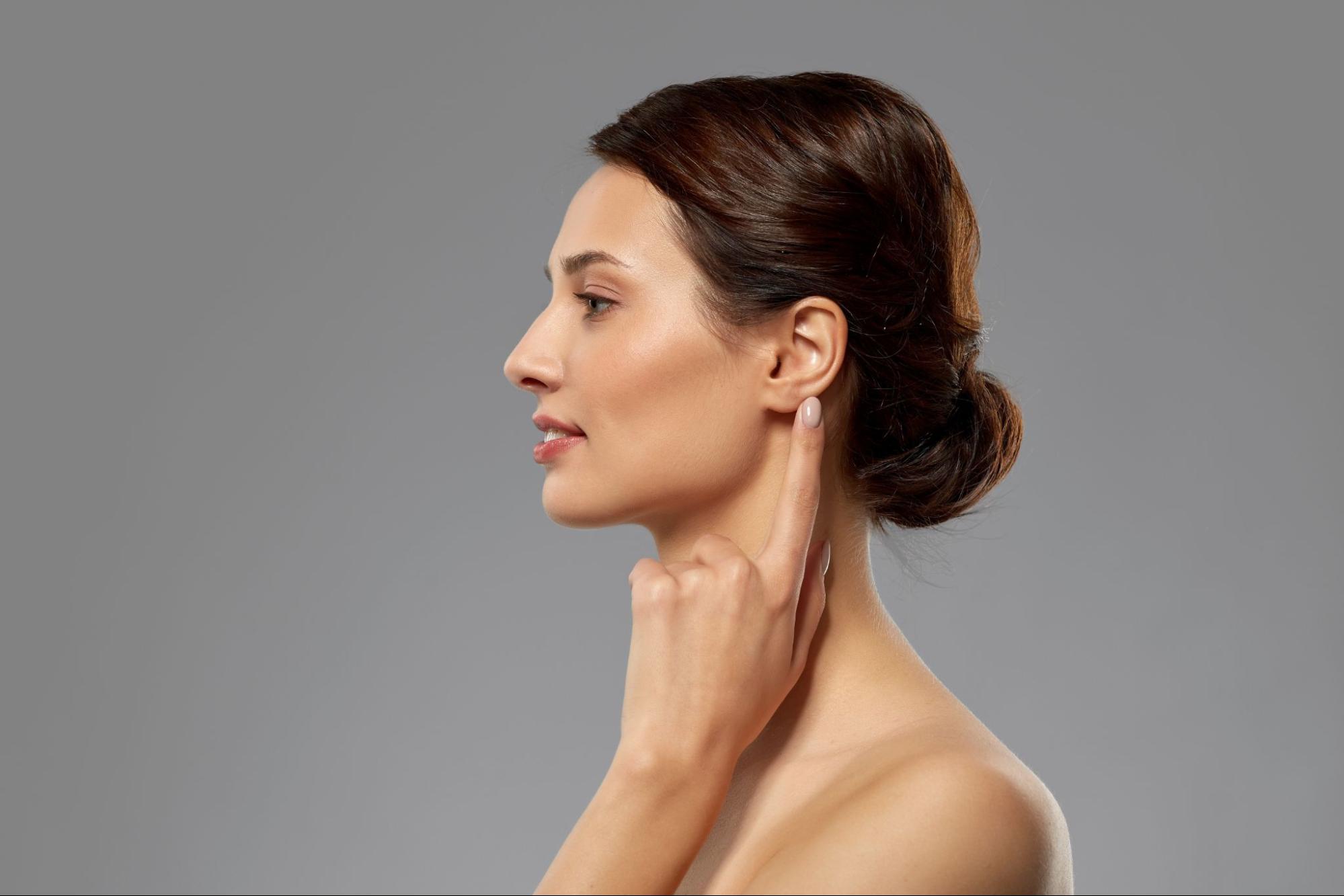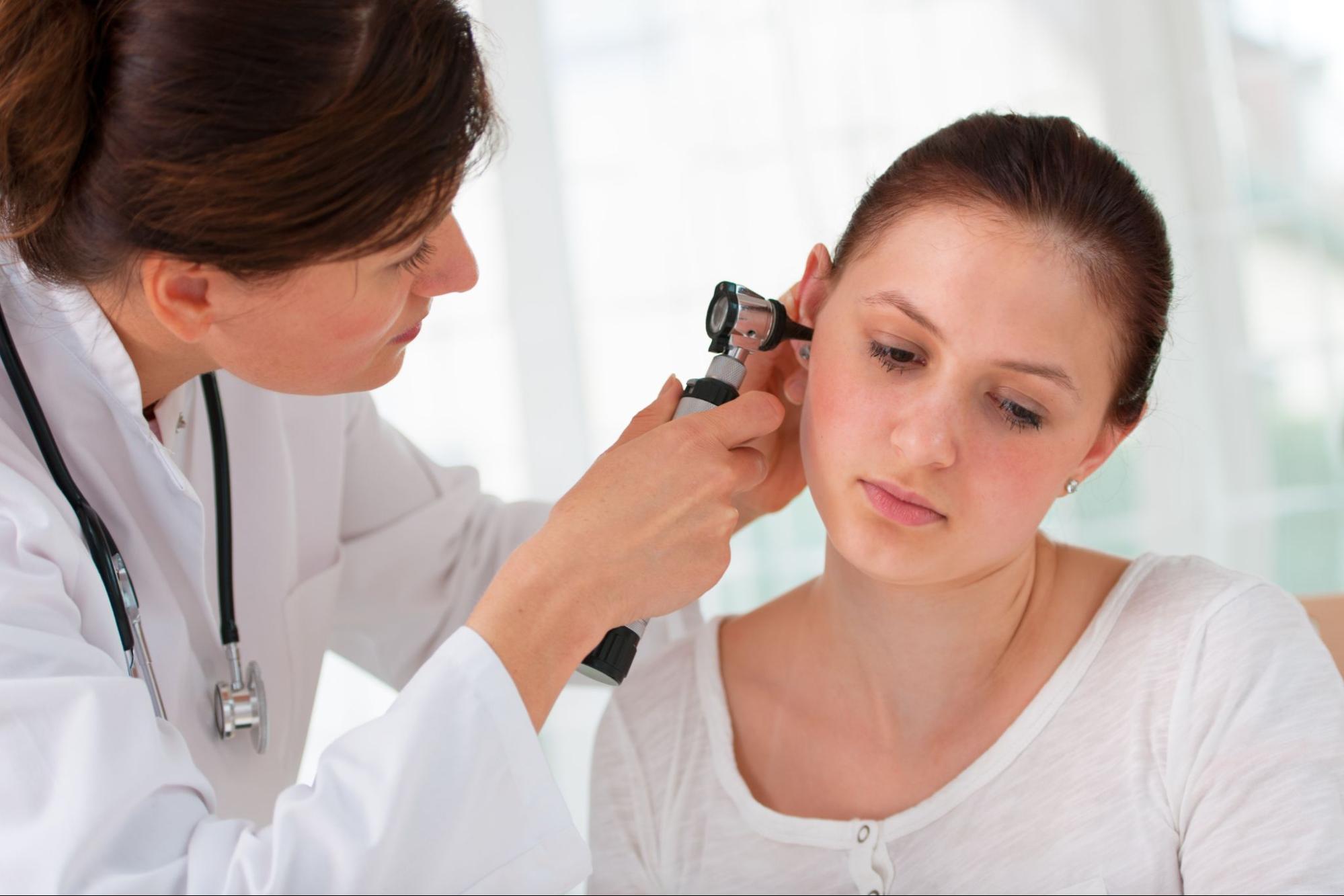If you are experiencing a rhythmic or muffled thumping in your ears, it can not only be annoying but may also be a cause for concern. The medical term for thumping in your ears is pulsatile tinnitus. This is one type of tinnitus that affects around 5 million American adults. For some people, the sounds can be so loud that it can be difficult to concentrate or sleep.
Pulsatile tinnitus (PT) varies from the more common form of tinnitus that causes a ringing sensation in the ears. Although PT can be non-threatening, often there is an underlying condition that your doctor can diagnose and treat. This article explains the symptoms and possible causes of PT and how to deal with it.
Symptoms of Pulsatile Tinnitus
Although no external sounds cause PT, you may experience the following symptoms or noises in either your right ear or left ear — or perhaps in both:
- Muffled or loud thumping
- Buzzing or roaring
- Whooshing or clicking
You may not hear the sound all the time, as it can come and go. When you do notice it, it typically has a regular rhythm, without changes in tone or pitch. The thumping sound often occurs in time to your heartbeat.
Causes of Thumping in Your Ears
PT occurs due to a change in your blood pressure within blood vessels that are close to your ears — for example, your veins and arteries in the base of your skull or your neck. It may occur when pressure changes in the blood vessels in your inner ear.
Common causes of PT include:
- Increased blood flow: When you play sports or exercise, it causes your blood to flow more quickly, and it makes more noise. This can also happen when you are pregnant.
- Tumor: You can experience a localized increase in blood flow if you have a tumor in your neck or head. Typically, these tumors are benign.
- Atherosclerosis: Also known as hardening of the arteries, atherosclerosis is a disease caused by a buildup of cholesterol and fats that block the arteries. This causes a louder blood flow that may lead to PT.
- Ear disorder or injury: If you have an ear infection, a blockage due to earwax, or trauma to your ear, such as a perforated eardrum or other abnormalities, this can cause you to become more sensitive to the sound of your blood flow.
- Pernicious anemia: Commonly known as severe iron deficiency, anemia can cause PT because it causes your blood to flow faster.
- Hyperthyroidism: This condition occurs when the thyroid gland produces too much of the hormone thyroxine. Because it speeds up your metabolism, it causes your blood to flow quicker and may result in PT.
- Aneurysms: An aneurysm is a form of arteriovenous malformation causing a bulge in the wall of an artery. It occurs when the high pressure of your blood flow forces a weakened area of the arterial wall to bulge outward. This can be an underlying cause of PT.
Recommended Treatments for Pulsatile Tinnitus With an Underlying Condition
Treatment will vary from person to person depending on the cause of PT. If an underlying condition is the cause of your tinnitus, your doctor will treat this to relieve your symptoms.
Treatments for underlying conditions include:
- Tumor: Tumors that cause PT tend to be benign, this means that they are non-cancerous and will not spread to another part of your body. Your doctor will refer you to a surgeon who will remove the tumor.
- Atherosclerosis: Your doctor will prescribe medication to slow or reverse the progress of atherosclerosis. Drugs such as statins, blood pressure medications, or blood thinners can alleviate this condition.
- Ear disorder or injury: If you have an ear infection, your doctor may prescribe ear drops or antibiotics. Typically, a perforated eardrum will heal without treatment within a few weeks. If it does not, your doctor may recommend surgery to close the tear.
- Pernicious anemia: Your doctor will usually treat this type of anemia with B12 tablets or shots.
- Hyperthyroidism: Treatment for hyperthyroidism will largely depend on your age, general health, and the severity of the disorder. Treatment options include anti-thyroid medications, beta-blockers, and radioactive iodine.
- Aneurysms: Typically, your doctor will refer you to a surgeon to treat your aneurysm. One type of surgery is open surgery, in which the doctor will insert a stent into the damaged blood vessel. The other is endovascular surgery. In this case, the surgeon will insert an endovascular graft.
Recommended Treatments for Pulsatile Tinnitus Without an Underlying Condition
If you do not have an underlying condition, your doctor may recommend one of the following treatments for PT.
Tinnitus Retraining Therapy (TRT)
TRT is a specific form of sound therapy that helps you learn to cope with PT and improves your quality of life. Initially, your doctor will discuss your condition, general health, and lifestyle. You will wear small devices, known as sound generators, on each ear. They look similar to behind-the-ear hearing aids.
The instruments train your brain to forget about the annoying sound of PT by playing a neutral sound, such as white noise or rain falling. Over time, you will begin to associate the sound with the thumping in your ears, and this will help you to ignore it. TRT treatment usually takes between 12 and 24 months.
Progressive Muscle Relaxation (PMR)
PMR can help to relieve stress, slow your metabolism, and lower your blood pressure. In doing so, it can also reduce your symptoms of PT. Practicing PMR for as few as 10 minutes each day can help.
Sit or lie in a comfortable position. Starting with your feet and moving slowly up to your abdomen, chest, shoulders, and neck, tense each part of your body one at a time and hold for three breaths. As you relax each area, focus on the tension leaving that part of your body, and take three deep breaths. If you do not feel relaxed the first time, you can repeat the cycle until your breathing and your heart rate slows.
Meditation
You can use meditation to retrain your brain in a similar way to TRT treatment. Meditation is a technique that focuses on listening to your breathing. You will need a quiet place to practice meditation — somewhere you feel comfortable and where no one will disturb you.
Inhale and exhale deeply through your nose, and listen to the flow of your breathing. If you are having trouble concentrating, it may be easier to picture a scene that helps you relax, such as lying on a beach or soaking in a warm bath. You could also try counting down from 10 to one as you breathe.
Find Relief From Thumping in Your Ear
If you’re experiencing persistent thumping in one or both ears, you should talk to your doctor. The PT may be due to an underlying condition. If this is the case, treating the condition should relieve your symptoms.
Are you having difficulty hearing and think you may be suffering from hearing loss? You can take FreeHearingTest.org’s free hearing screening test in the comfort of your own home, using either a landline or mobile phone. It only takes five minutes.
You can also take a free online hearing screening from MDHearingAid. This test takes less than eight minutes.

Corinna Underwood
Freelance Writer
Corinna Underwood is uprooted from the UK and transplanted in the USA. She has been writing about health and wellness for twenty years. She also writes mystery novels.



